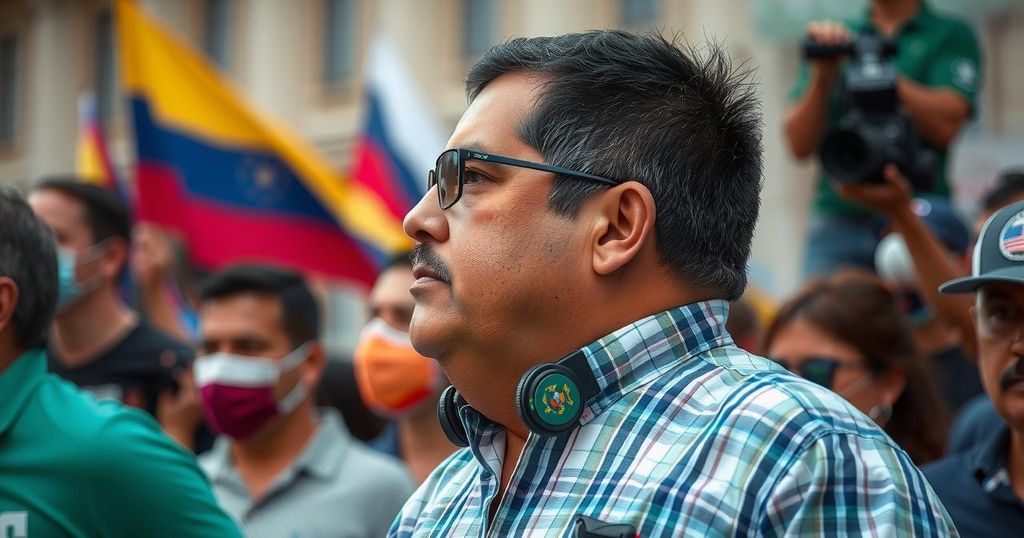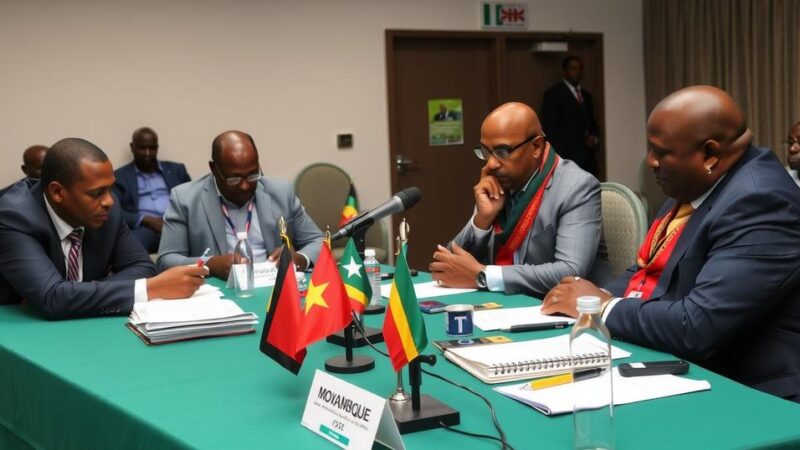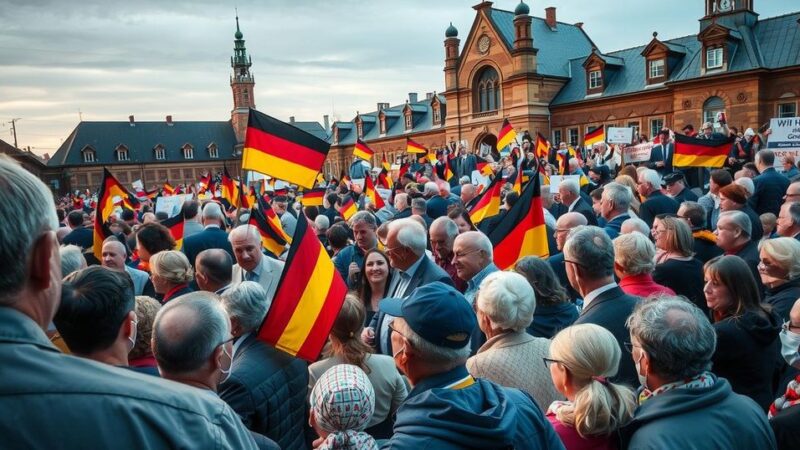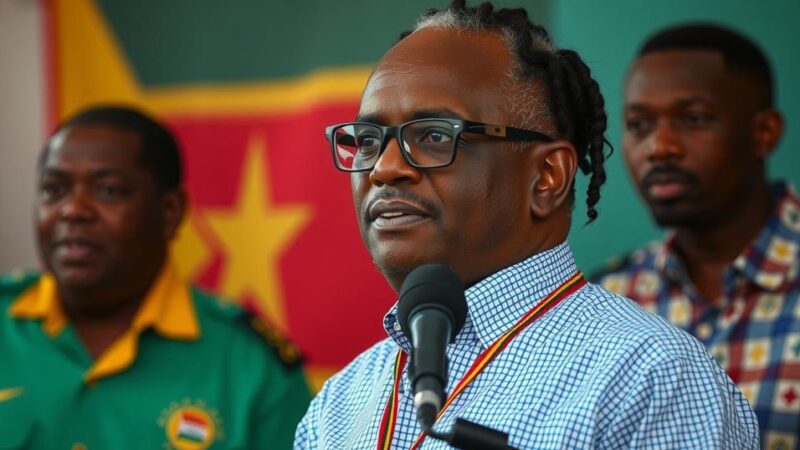Colombia proposes to take control of the Argentine embassy in Caracas to facilitate the safe passage of six opposition aides residing there under threat of arrest. This move follows discussions with the Venezuelan government, which has shown the potential for cooperation contingent upon the release of certain individuals. The situation highlights Colombia’s growing involvement in Venezuelan political affairs amid increasing repression by President Maduro following a contentious re-election.
Colombia has extended an offer to assume custodianship of Argentina’s embassy in Caracas, where six aides of opposition leader María Corina Machado have taken refuge since March. Foreign Affairs Minister Luis Gilberto Murillo indicated that this initiative stems from direct discussions with the Venezuelan government, aimed at facilitating the safe passage of these officials. He noted that the Venezuelan authorities appear amenable to cooperation, conditional upon Argentina’s release of a specific individual linked to their government and Ecuador’s release of former Vice President Jorge Glas.
Jorge Glas, detained following a contentious operation at the Mexican embassy in Quito, served under President Rafael Correa, a known ally of both Hugo Chávez and Nicolás Maduro. Maduro condemned the embassy raid as “barbarism” on the part of Ecuador’s President Daniel Noboa, who he criticized for backing Venezuela’s opposing forces. The ongoing negotiations reflect Colombia’s increasing engagement in Venezuela’s complicated political landscape, particularly as President Maduro’s administration intensifies repression against dissenters following his disputed re-election.
The aides to Machado, who have been in the Argentine embassy facing potential arrest for charges of terrorism, have reported on social media concerning the growing aggression of Venezuelan police beside their residence, including power outages and restricted access to basic utilities. Notably, the United Nations Human Rights Council has declared these maneuvers as violations of international law. Among those seeking refuge are key campaign figures such as Magalli Meda and advisers Pedro Urruchurtu and Claudia Macero.
The political situation has further escalated as both Maduro and his stand-in candidate, Edmundo González, who has since relocated to Spain, plan to assert their positions at the commencement of the new presidential term on January 10. In pursuit of resolving the ongoing crisis, Minister Murillo has visited Brazil and Ecuador, acting upon instructions from President Gustavo Petro, who seeks diplomatic resolution.
Brazilian foreign officials have confirmed their intention to maintain control over the embassy until Argentina designates a successor state. Meanwhile, Argentina has criticized the fundamental human rights violations under Maduro’s regime. Despite a thaw in bilateral relations between Venezuela and Brazil, President Luiz Inacio Lula da Silva has refrained from acknowledging Maduro’s electoral victory and has urged for transparency regarding the electoral process.
The political landscape of Venezuela has been increasingly fraught with tension, particularly following Nicolás Maduro’s contested re-election, which has drawn international scrutiny and condemnation. The Venezuelan government’s crackdown on opposition, spearheaded by figures such as María Corina Machado, has prompted significant diplomatic maneuvers among neighboring countries. Colombia’s involvement emerges as a pivotal factor in addressing the humanitarian concerns surrounding political dissidents in Venezuela, especially those seeking refuge within diplomatic missions. The actions of the United Nations and various human rights organizations highlight the global implications of the ongoing crisis, emphasizing the urgent need for effective diplomatic interventions to ensure safe passage for threatened individuals.
The developments regarding Colombia’s offer to safeguard opposition aides in Venezuela underscore the deepening diplomatic crisis in the region. The potential cooperation between Colombia and Venezuela, conditioned on Argentina’s and Ecuador’s actions, illustrates the complex interplay of regional politics and humanitarian concerns. As the international community continues to monitor the situation, the resolutions forged among these nations could significantly influence the future trajectory of Venezuelan politics and humanitarian treatment.
Original Source: www.bnnbloomberg.ca







